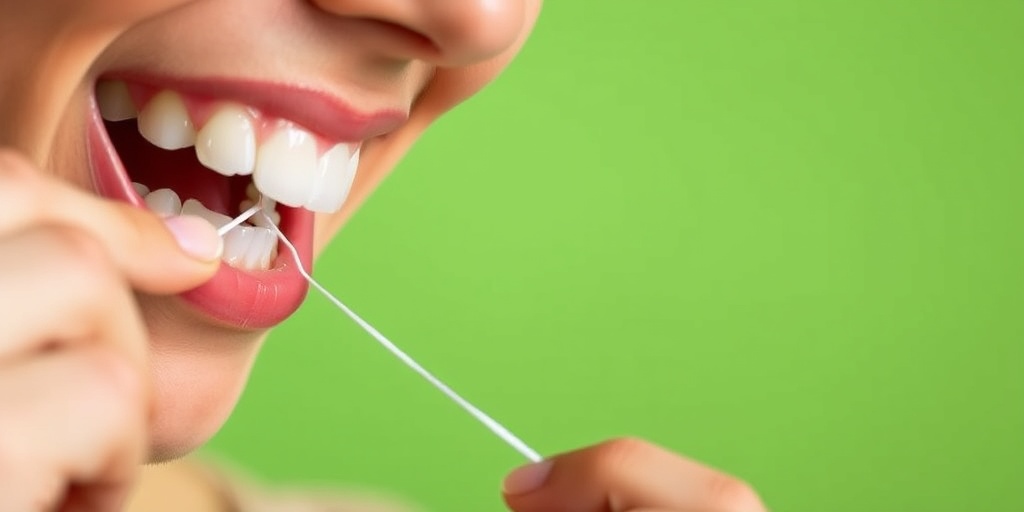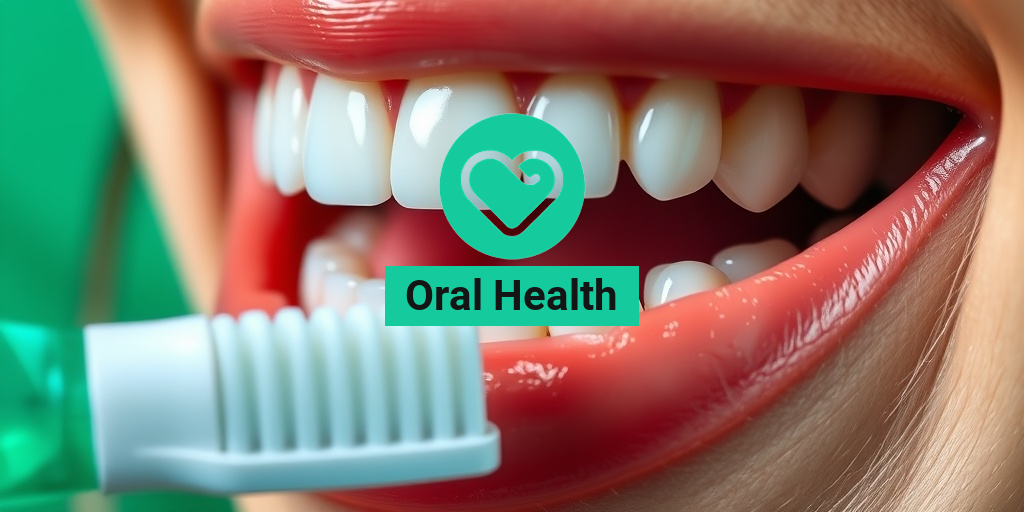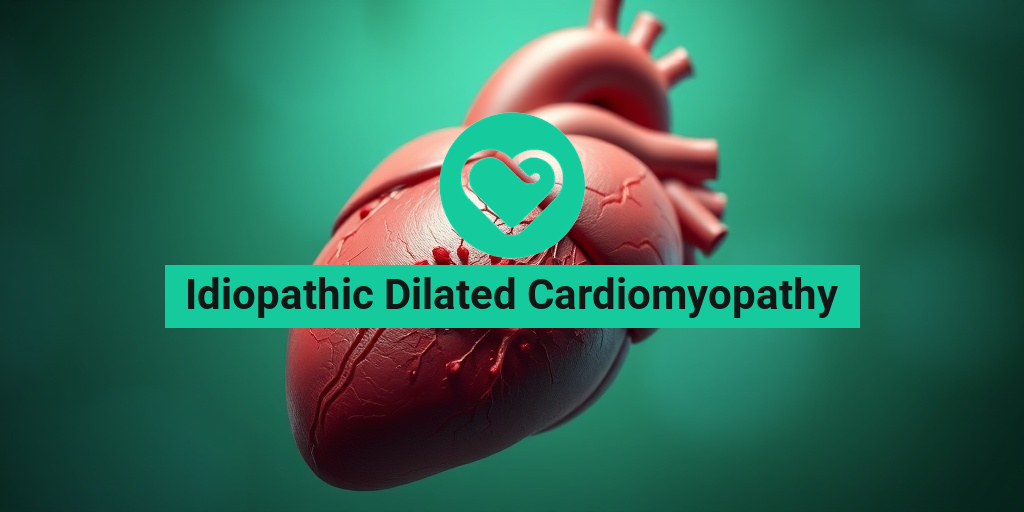What Is Oral Health?
Oral health refers to the overall health of your mouth, teeth, gums, and the surrounding structures. It encompasses a variety of factors, including the absence of disease, the ability to chew and speak comfortably, and the maintenance of a pleasing appearance. In essence, oral health is not just about having a bright smile; it plays a crucial role in your overall well-being.
The Components of Oral Health
Understanding what constitutes good oral health involves recognizing several key components:
- Healthy Teeth: Strong, cavity-free teeth are essential for effective chewing and speaking.
- Healthy Gums: Gums should be pink and firm, free from inflammation or bleeding.
- Fresh Breath: Persistent bad breath can indicate underlying health issues.
- Functional Jaw: A jaw that functions properly allows for comfortable chewing and speaking.
What Affects Oral Health?
Several factors can influence your oral health, including:
- Diet: A balanced diet rich in vitamins and minerals supports healthy teeth and gums.
- Oral Hygiene Practices: Regular brushing and flossing are vital for preventing cavities and gum disease.
- Habits: Smoking and excessive alcohol consumption can negatively impact oral health.
- Medical Conditions: Conditions like diabetes can affect oral health, making regular dental check-ups essential.
For more detailed information on maintaining your oral health, consider visiting an oral health center or consulting with an oral health group that specializes in comprehensive care.
Importance of Oral Hygiene
Oral hygiene is the practice of keeping your mouth clean and free from disease. It is a fundamental aspect of maintaining good oral health and overall well-being. The importance of oral hygiene cannot be overstated, as it directly impacts not only your mouth but also your body as a whole.
Why Is Oral Hygiene Important?
Here are some compelling reasons why maintaining good oral hygiene is crucial:
- Prevention of Dental Issues: Regular brushing and flossing help prevent cavities, gum disease, and other dental problems.
- Overall Health: Poor oral hygiene has been linked to various health issues, including heart disease and diabetes. Maintaining good oral health can help mitigate these risks.
- Enhanced Quality of Life: Healthy teeth and gums contribute to better self-esteem and confidence, allowing you to smile freely.
- Cost-Effective: Preventive care is often less expensive than treating dental problems. Regular check-ups can save you money in the long run.
Best Practices for Oral Hygiene
To maintain optimal oral hygiene, consider the following practices:
- Brush Twice Daily: Use fluoride toothpaste and a soft-bristled toothbrush to brush your teeth for at least two minutes.
- Floss Daily: Flossing removes food particles and plaque from between your teeth, where your toothbrush may not reach.
- Regular Dental Visits: Schedule check-ups and cleanings at least twice a year with your dentist.
- Limit Sugary Foods: Reducing sugar intake can help prevent cavities and maintain healthy teeth.
In addition to these practices, consider incorporating oral health probiotics into your routine. These beneficial bacteria can help balance the oral microbiome, promoting better oral health.
Looking Ahead: Oral Health Day 2025
Mark your calendars for Oral Health Day 2025, a global initiative aimed at raising awareness about the importance of oral health. This day will serve as a reminder to prioritize your oral hygiene and seek professional care when needed.
For more information on oral health and to stay updated on the latest research and practices, visit Yesil Health AI, a valuable resource for evidence-based health answers.
In conclusion, maintaining good oral health is essential for your overall well-being. By understanding what oral health entails and committing to proper oral hygiene practices, you can enjoy a healthier mouth and a brighter smile! 😁

Common Oral Health Issues
Maintaining oral health is crucial for overall well-being, yet many people face various oral health issues throughout their lives. Understanding these common problems can help you take proactive steps to prevent them. Here are some of the most prevalent oral health issues:
Cavities
Cavities, also known as dental caries, are one of the most common oral health problems. They occur when bacteria in the mouth produce acids that erode tooth enamel. Factors contributing to cavities include:
- Poor oral hygiene
- Frequent consumption of sugary foods and drinks
- Insufficient fluoride exposure
Regular dental check-ups and good oral hygiene practices can significantly reduce the risk of cavities.
Gum Disease
Gum disease, or periodontal disease, is another widespread issue that can lead to serious complications if left untreated. It begins with gingivitis, characterized by inflammation and bleeding of the gums. If not addressed, it can progress to periodontitis, which can result in tooth loss. Key factors include:
- Poor oral hygiene
- Smoking
- Diabetes
Maintaining proper oral health and hygiene is essential to prevent gum disease.
Bad Breath
Halitosis, commonly known as bad breath, can be an embarrassing issue for many. It often results from poor oral hygiene, but it can also be a sign of underlying health problems. Common causes include:
- Food particles trapped in the mouth
- Dry mouth
- Gum disease
Regular brushing, flossing, and hydration can help combat bad breath.
Tooth Sensitivity
Tooth sensitivity is a common complaint, often triggered by hot, cold, or sweet foods and beverages. It can result from worn enamel, gum recession, or tooth decay. If you experience sensitivity, consider consulting an oral health center for advice on treatment options.
Oral Cancer
Oral cancer is a serious condition that can affect any part of the mouth. Risk factors include tobacco use, excessive alcohol consumption, and HPV infection. Regular screenings at an oral health group can help detect oral cancer early, improving treatment outcomes.
Oral Health and Diet
Your diet plays a significant role in your oral health. What you eat can either promote healthy teeth and gums or contribute to various oral health issues. Here’s how diet impacts your oral health:
Foods That Promote Oral Health
Incorporating certain foods into your diet can enhance your oral health:
- Dairy Products: Foods like cheese and yogurt are rich in calcium and phosphates, which help strengthen teeth.
- Fruits and Vegetables: Crunchy fruits and veggies, such as apples and carrots, can help clean teeth and stimulate gums.
- Nuts: Nuts are a great source of healthy fats and can help reduce inflammation in the mouth.
Foods to Avoid
Just as some foods can benefit your oral health, others can be detrimental:
- Sugary Snacks and Drinks: These can lead to cavities and gum disease.
- Acidic Foods: Citrus fruits and sodas can erode tooth enamel over time.
- Sticky Foods: Foods like caramel can cling to teeth and promote decay.
The Role of Hydration
Staying hydrated is essential for maintaining good oral health. Water helps wash away food particles and bacteria, reducing the risk of cavities and gum disease. Additionally, drinking water can help combat dry mouth, a condition that can lead to bad breath and other oral health issues.
Oral Health Probiotics
Emerging research suggests that oral health probiotics may play a role in maintaining a healthy mouth. These beneficial bacteria can help balance the oral microbiome, potentially reducing the risk of cavities and gum disease. Consider discussing probiotic options with your dentist for personalized recommendations.
In conclusion, understanding common oral health issues and the impact of diet on your oral health can empower you to make informed choices. Regular dental visits and a balanced diet are key components of maintaining a healthy smile! 😁

Brushing Techniques
Maintaining oral health starts with effective brushing techniques. Proper brushing not only helps remove food particles and plaque but also plays a crucial role in preventing gum disease and cavities. Here are some essential techniques to ensure you’re brushing effectively:
1. Choose the Right Toothbrush
Using the right toothbrush is the first step towards optimal oral health care. A soft-bristled toothbrush is generally recommended as it is gentle on the gums while effectively cleaning the teeth. Consider using an electric toothbrush, such as the Oral B Pro Health, which can provide a more thorough clean compared to manual brushing.
2. Use the Correct Technique
To brush effectively, follow these steps:
- Angle Your Brush: Hold your toothbrush at a 45-degree angle to your gums.
- Gentle Circular Motions: Use gentle circular motions to brush the outer and inner surfaces of your teeth.
- Brush the Chewing Surfaces: Use a back-and-forth motion on the chewing surfaces of your molars.
- Don’t Forget Your Tongue: Gently brush your tongue to remove bacteria and freshen your breath.
3. Timing is Everything
Brush your teeth for at least two minutes, twice a day. This duration ensures that you cover all areas of your mouth effectively. Consider using a timer or an electric toothbrush with a built-in timer to help you keep track.
4. Replace Your Toothbrush Regularly
To maintain effective brushing, replace your toothbrush every three to four months, or sooner if the bristles are frayed. A worn-out toothbrush will not clean your teeth effectively, compromising your oral health.
5. Incorporate Fluoride Toothpaste
Using fluoride toothpaste can significantly enhance your oral health and hygiene. Fluoride helps strengthen tooth enamel and can reverse early signs of tooth decay. Look for toothpaste that has the American Dental Association (ADA) Seal of Acceptance to ensure its effectiveness.
Flossing Benefits
While brushing is essential, it’s equally important to incorporate flossing into your daily routine. Flossing is often overlooked, but it plays a vital role in maintaining oral health. Here are some key benefits of flossing:
1. Removes Plaque and Food Particles
Flossing helps remove plaque and food particles that your toothbrush may miss, especially between teeth and along the gum line. This is crucial for preventing cavities and gum disease, making it an essential part of your oral health care routine.
2. Prevents Gum Disease
Regular flossing can significantly reduce the risk of gum disease, which can lead to serious health issues if left untreated. By removing plaque buildup, you help keep your gums healthy and reduce inflammation.
3. Freshens Breath
Flossing can help eliminate bad breath by removing food particles and bacteria that cause odor. A clean mouth contributes to overall freshness, making you feel more confident in social situations. 🌟
4. Enhances Overall Health
Research has shown a connection between oral health and overall health. Poor oral hygiene can lead to conditions such as diabetes and heart disease. By flossing regularly, you’re not just taking care of your teeth; you’re also supporting your overall well-being.
5. Easy to Incorporate into Your Routine
Flossing doesn’t have to be a time-consuming task. With practice, you can incorporate it into your daily routine in just a few minutes. Consider using floss picks or water flossers if traditional floss is challenging for you.
In conclusion, both brushing and flossing are essential components of maintaining good oral health. By adopting proper techniques and making these practices a habit, you can enjoy a healthier mouth and a brighter smile! 😁

Regular Dental Checkups
Maintaining oral health is crucial for overall well-being, and one of the most effective ways to ensure your mouth stays healthy is through regular dental checkups. These visits to your dentist are not just about cleaning your teeth; they play a vital role in preventing serious health issues.
Why Are Regular Checkups Important?
Regular dental checkups are essential for several reasons:
- Early Detection of Problems: Dentists can identify issues like cavities, gum disease, and oral cancer in their early stages, making treatment easier and more effective.
- Professional Cleaning: Even with diligent brushing and flossing, plaque and tartar can build up. Professional cleanings help remove these deposits, reducing the risk of decay and gum disease.
- Education on Oral Health: Your dentist can provide personalized advice on maintaining oral health and hygiene, including tips on brushing techniques and dietary choices that benefit your teeth.
How Often Should You Visit the Dentist?
The general recommendation is to visit your dentist at least twice a year. However, individuals with specific health conditions, such as diabetes and oral health issues, may need more frequent visits. Your dentist will tailor a schedule based on your unique needs.
What to Expect During a Checkup
During a typical dental checkup, you can expect the following:
- Medical History Review: Your dentist will ask about your medical history and any changes since your last visit.
- Examination: A thorough examination of your teeth, gums, and mouth will be conducted to check for any signs of problems.
- X-rays: If necessary, X-rays will be taken to get a detailed view of your oral health.
- Cleaning: A dental hygienist will clean your teeth, removing plaque and tartar buildup.
- Discussion: Your dentist will discuss any findings and recommend treatment if needed.
Tips for Preparing for Your Dental Visit
To make the most of your dental checkup, consider these tips:
- Keep a Record: Bring a list of any medications you are taking and any changes in your health.
- Ask Questions: Don’t hesitate to ask your dentist about any concerns you have regarding your oral health.
- Follow Up: If your dentist recommends follow-up appointments or treatments, make sure to schedule them promptly.
Oral Health for Kids
Establishing good oral health habits in childhood is essential for a lifetime of healthy teeth and gums. Teaching kids about oral health and hygiene can set the foundation for their future dental care.
Why Is Oral Health Important for Kids?
Children are particularly vulnerable to dental issues, making it crucial to prioritize their oral health. Here are some reasons why:
- Preventing Cavities: Kids are prone to cavities due to their diets and habits. Regular dental visits can help prevent these issues.
- Promoting Healthy Habits: Teaching children the importance of brushing and flossing early on encourages lifelong habits.
- Impact on Overall Health: Poor oral health can lead to problems beyond the mouth, including issues with nutrition and speech development.
Tips for Maintaining Your Child’s Oral Health
Here are some effective strategies to ensure your child’s oral health:
- Start Early: Begin cleaning your baby’s gums with a soft cloth even before their teeth come in.
- Brush Together: Make brushing a family activity. Kids are more likely to brush their teeth if they see their parents doing it.
- Limit Sugary Snacks: Encourage healthy snacks and limit sugary treats that can lead to cavities.
- Regular Dental Visits: Schedule dental checkups every six months to monitor your child’s oral health.
Fun Ways to Teach Kids About Oral Health
Engaging your child in learning about oral health can make it fun! Here are some ideas:
- Use Games: Incorporate games that teach kids about brushing and flossing.
- Storytime: Read books about dental care to make the topic relatable and interesting.
- Reward System: Create a reward chart for good brushing habits to motivate your child.
By prioritizing oral health from a young age, you can help your child develop a positive attitude towards dental care, ensuring they maintain healthy habits throughout their lives. 🦷✨

Frequently Asked Questions about Oral Health
What is Oral Health?
Oral health refers to the overall health of your mouth, teeth, gums, and related structures. It encompasses the prevention and treatment of oral diseases, as well as maintaining good hygiene practices to ensure a healthy smile.
Why is Oral Health Important?
Maintaining good oral health is crucial not only for your mouth but also for your overall well-being. Poor oral hygiene can lead to various health issues, including gum disease, tooth decay, and even systemic conditions like heart disease and diabetes.
How Can I Improve My Oral Health?
- Brush your teeth at least twice a day with fluoride toothpaste.
- Floss daily to remove plaque and food particles between teeth.
- Visit your dentist regularly for check-ups and cleanings.
- Limit sugary foods and beverages that can contribute to tooth decay.
- Consider using oral health probiotics to support your mouth’s natural flora.
What is the Role of an Oral Health Center?
An oral health center provides comprehensive services aimed at promoting and maintaining good oral hygiene. These centers often offer preventive care, treatment for dental issues, and education on proper oral care practices.
How Does Diabetes Affect Oral Health?
Individuals with diabetes are at a higher risk for gum disease and other oral health issues. High blood sugar levels can lead to dry mouth, which increases the risk of cavities and infections. It’s essential for those with diabetes to maintain strict oral hygiene and have regular dental check-ups.
What is Oral Health Day?
Oral Health Day is an annual event aimed at raising awareness about the importance of oral hygiene and promoting good practices. The next Oral Health Day 2025 will focus on educating the public about the connection between oral health and overall health.
What Are Oral Health Probiotics?
Oral health probiotics are beneficial bacteria that can help maintain a healthy balance in your mouth. They may reduce the risk of cavities and gum disease by outcompeting harmful bacteria and promoting a healthier oral environment.
How Can I Find an Oral Health Group?
To find an oral health group, you can search online for local dental associations or community health organizations. Many of these groups offer resources, support, and educational programs to help individuals improve their oral hygiene practices.




